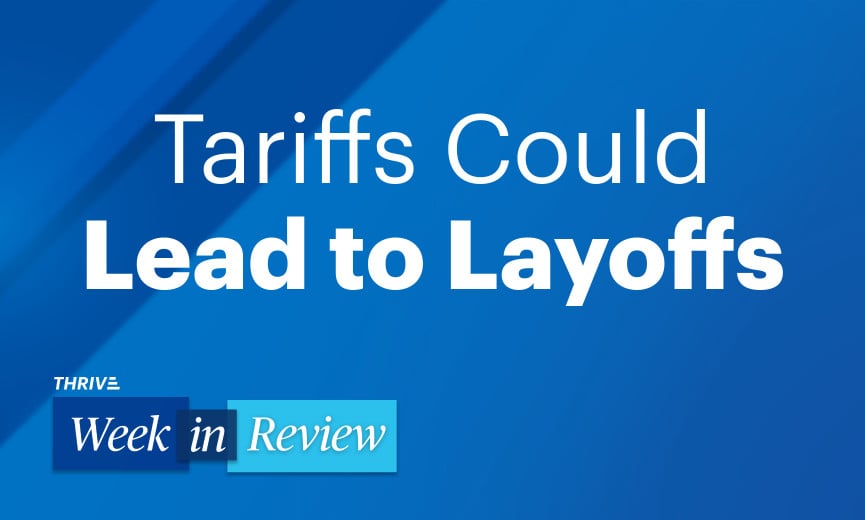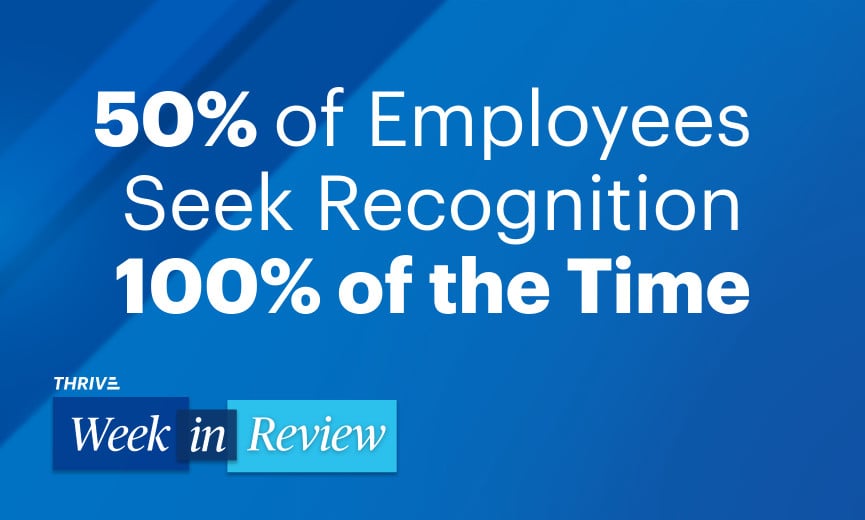- Thrive
-
Temporada
5Episodio61
Impacto del cierre del gobierno, los aranceles y las tribulaciones, y el aprovechamiento de la IA en los negocios
Podcast •
Vea
Resumen
Gene Marks profundiza en los impactos del cierre continuo del gobierno en las pequeñas empresas y enfatiza los desafíos resultantes del flujo de efectivo debido a la suspensión de contratos y servicios federales. Él analiza las iniciativas de Google para fortalecer a las pequeñas empresas mediante la capacitación en IA y examina cómo los aranceles, aunque aumentan los costos, también impulsaron la resiliencia y el crecimiento estratégico entre las empresas. Sintonice para conocer estrategias sobre cómo sortear estos desafíos y aprovechar las oportunidades en medio de la disrupción.
Recursos adicionales
Check out how Paychex helps businesses
Ver transcripción
Hey, everybody, it's Gene Marks and welcome to this week's edition of the Paychex THRIVE Week in Review podcast. This is where we take a few items of news that impacts your small business and mine, and we talk a little bit about them. We are still undergoing a government shutdown and it is creating significant challenges for small businesses already strained by tariffs. This comes from various sources of news from Reuters to the Wall Street Journal.
Many firms dependent on federal contracts face stop work orders, halted payments, and suspended lending programs, forcing layoffs and cash flow stress. Regulatory reviews and inspections are also on hold, adding operational uncertainty. These disruptions compound existing pressures from tariffs, which have driven up costs and complicated supply chains. All of this is putting even more pressure on the nation's 33 million small businesses.
The Small Business Administration has stopped processing new loans and approving routine small business loans. In 2023, the House Committee on Small Business reported a shutdown could cause small businesses to forgo $301 million nationally on a daily basis. For small businesses that are prime contractors with the federal government, the government can't award contracts, modify them, or exercise options during a government shutdown. But the work is expected to continue.
These funding issues also impact the subcontractors and creates uncertainty in the event a stop work order is received. This creates exposure for paychecks for clients processing payroll with government funding. Beyond small businesses, the shutdown has paused major actions like antitrust cases against tech giants and underscores how deeply private sector activity is tied to federal operations.
What do you do right now? Not a whole lot you can do while the government remains shut. All you can do is try to withhold and conserve cash. Hold up on payments to suppliers if you're not getting paid from your government contractors or even the government. Try to conserve as much cash as you can while you wait this thing out. It will get resolved. It may take another week, two or three weeks to get resolved, but it will get resolved eventually with both sides having made their points as to what's important to them and establishing their boundaries as we head into a midterm election year. But you got to stay the course. If you're a small business owner, you got to conserve your cash.
Withhold payments to everybody but your employees is my advice. And try and try and be very, very stringent with the cash that's going out of your business while you navigate your way through this shutdown. But the shutdown is real and it is going to continue.
I want to pause, by the way, this conversation for just a moment with just a surprising statistic for you. Did you know that 34 percent of business owners told Paychex they spend 10 hours a week on HR tasks? And it's easy to see why. I mean, there's hiring, there's onboarding, there's benefits, there's compliance. It's a lot to handle. So imagine if you could clone yourself to handle all of this. Kind of sounds like a dream, right? Well, that's where Paychex comes in. From finding the right people to streamlining their first day, even helping you manage benefits and compliance along the way. It's like having an entire HR team that's there and working for you just the way that you need. Take a moment after this podcast episode and check out Paychex at Paychex.com/MeetPaychex, that's p-a-y-c-h-e-x.com forward slash m-e-e-t-p-a-y-c-h-e-x. You'll also find this link in the show notes. OK, let's get back into the news, shall we?
Here's some technology news for you. Small businesses are increasing leveraging AI to drive their success with over half of leaders viewing AI tools as essential. Google is supporting this shift through its AI Works initiative. They announced a partnership with the U.S. Chamber of Commerce at their CO-100 conference. Key efforts by Google and the U.S. Chamber include a $5 million Google.org grant to launch Small Business Basics, a national training program to aim at equipping 40,000 U.S. small businesses with foundational AI skills. Additionally, Google introduced Make AI Work for You, a free course offering practical guidance on using AI for tasks like creating sales decks, advertising materials and analyzing business results. Complementing the online course in-person workshops and local chambers provide hands-on experience and personalized AI adoption plans. These initiatives aim to empower small businesses to harness AI effectively and remain competitive in a rapidly evolving digital economy. So Google making moves to help small businesses out to learn AI.
Our final story today has to do with tariffs. Tariffs have increased costs and disrupted supply chains, but hold on. Many firms are turning these challenges into strategic opportunities. A recent report showed that almost 93% of goods producers face higher raw material costs. 74% are experiencing delays, yet 70% see tariffs as a chance to boost local economies and 41% credit them with improving resilience. Companies are responding by reducing operational costs, raising prices, diversifying suppliers, and adopting tactics like just-in-time inventory, product redesign, domestic sourcing, working capital. Certain tools like virtual cards are enabling faster settlements and tighter cash cycles. That's helping firms maintain lean inventories and renegotiate their supplier terms.
This shift signals a broader transformation from short term defensive measures to long term operational upgrades built on multi-sourcing digital payment rails and efficiency driven models that strengthen supply chains against future shocks. So tariffs are having a positive effect on many businesses by really making them leaner and meaner, more resilient and stronger for the future.
My name is Gene Marks and you've been watching or listening to this week's episode of the Paychex Thrive Week in Review. If you need any help or advice or tips and running your business, visit us and sign up for our Paychex THRIVE newsletter. Go to paychex.com/thrive. Hope you got good information here and I hope the next time I talk to you, the shutdown will be over. That remains to be seen, but we'll talk to you in a week. Take care.
Do you have a topic or a guest that you would like to hear on THRIVE? Please let us know. Visit payx.me/thrivetopics and send us your ideas or matters of interest. Also, if your business is looking to simplify your HR payroll benefits or insurance services, see how Paychex can help. Visit the resource hub at paychex.com/worx. That's W-O-R-X. Paychex can help manage those complexities while you focus on all the ways you want your business to thrive.
I'm your host, Gene Marks, and thanks for joining us.
This podcast is property of Paychex, Incorporated 2025. All rights reserved.

 Apple Podcast
Apple Podcast Spotify
Spotify iHeartRadio
iHeartRadio









